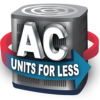Our trusty furnaces keep us cozy and comfortable during frigid winter months. But just like any loyal companion, even furnaces eventually reach the end of their service. Knowing the average lifespan of your furnace can help you plan for replacement, avoid unexpected breakdowns, and keep your home warm for years to come. So, grab a mug of hot cocoa and let's delve into the world of furnace longevity!
The Big Question: How Long Do Furnaces Last?
The good news: furnaces are built to last, with an average lifespan of 15 to 20 years. However, several factors can affect this number, like:
- Furnace type: Gas furnaces typically last longer than electric furnaces, with averages of 20-25 years and 15-20 years, respectively.
- Maintenance: Regular tune-ups and filter changes can extend your furnace's life by up to 30%. Neglecting maintenance can lead to premature failure.
- Usage: Homes that use their furnace heavily will naturally see a shorter lifespan.
- Quality: Higher-quality furnaces tend to last longer than budget models.
Signs Your Furnace Might Be Nearing Retirement:
- Age: If your furnace is approaching 15 years old, start keeping an eye out for other signs.
- Increased noise: Unusual clanging, banging, or screeching noises indicate potential issues.
- Frequent repairs: If your furnace needs repairs more than once a year, consider replacement.
- Uneven heating: Cold spots or inconsistent temperatures suggest problems with airflow or heating distribution.
- Rising energy bills: A significant increase in your heating costs could be due to declining furnace efficiency.
Planning for the Future:
Replacing a furnace is a significant investment, so planning ahead is crucial. Here are some tips:
- Start saving early: Set aside a yearly amount to prepare for future replacement costs.
- Research energy-efficient models: Newer furnaces offer significant energy savings over older models.
- Get quotes from multiple HVAC contractors: Compare prices and services to find the best fit.
- Consider financing options: Many companies offer financing programs to help manage the cost.
Start your search today and experience the acunitsforless.com difference!


